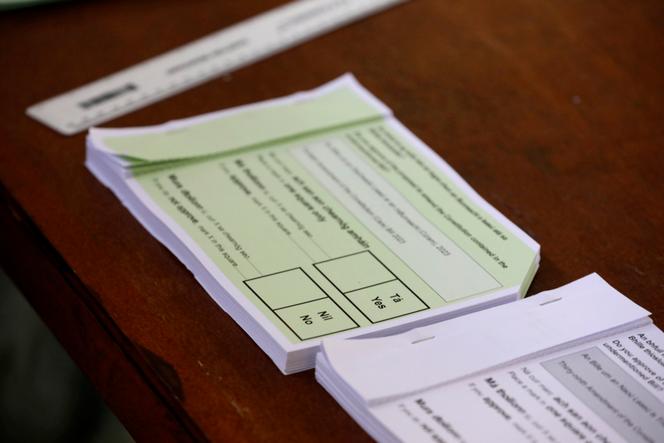


Ireland began voting in a double referendum on Friday, March 8 on proposals to modernize constitutional references to the make-up of a family and women's "life within the home". All the major political parties support a "Yes-Yes" vote, and until recently polls predicted a smooth passage for both on International Women's Day. This week Prime Minister Leo Varadkar, who heads the centre-right-green governing coalition that proposed the questions, admitted that the results were "in the balance". Voting stations open at 7am and close at 10pm.
The two proposals, called the family amendment and the care amendment, would make changes to the text of Article 41 in EU member Ireland's Constitution that was written in 1937. The first asks citizens to expand the definition of family from those founded on marriage to also include "durable relationships" such as cohabiting couples and their children. The second proposes replacing old-fashioned language around a mother's "duties in the home" with a clause recognizing care provided by family members to one another.
The votes are the latest attempt to reflect the changing face of Ireland and the waning influence of the once-dominant Catholic Church. Voters in the country of 5.3 million opted to end constitutional limits on same-sex marriage in 2015 and abortion in 2018.
As well as the governing parties and the main opposition party Sinn Fein, women's rights and family carer groups have also urged citizens to "vote for equality". "We see these changes as small steps forward and therefore on balance have advocated a 'yes' vote," said leftist-nationalist Sinn Fein leader Mary Lou McDonald on Thursday. "It's really important that we change our Constitution to reflect the reality of our lives in Ireland and the reality of families," Orla O'Connor, director of the National Women's Council of Ireland, told Agence France-Press (AFP).
But "No" campaigners argue the concept of "durable relationship" is undefined and confuses voters, and that women and mothers are being "canceled" from the Constitution. Disability rights activists also told AFP that the care amendment appears to portray disabled people as a burden on families, with the state abdicating its role in providing care.
Meanwhile, ultra-conservative voices have warned that the changes could constitutionally protect polygamous relationships, and increase immigration via migrant family reunions – claims all denied by the government.
